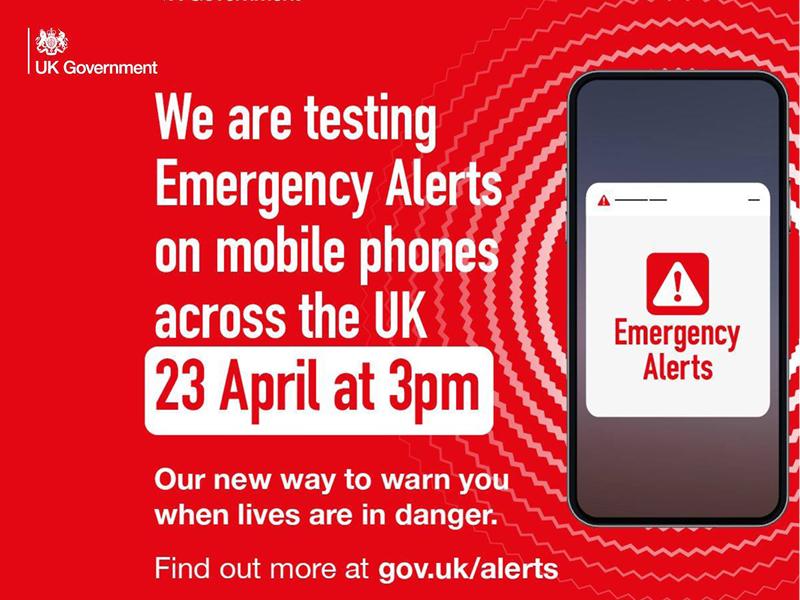The Emergency Alerts service will be used to warn you if there’s a danger to life nearby, during incidents such as severe flooding, fires or extreme weather.
On Sunday (23 April) at 3pm a UK-wide test alert will be sent to all compatible 4G and 5G mobile phones.
If your phone is compatible, and you haven’t switched off the ‘emergency/urgent alerts’ setting, you’ll hear a loud, siren-like sound for about 10 seconds. It will sound even if the phone (or possibly tablet) is set to silent. The phone might also vibrate.
There’ll be a message on the screen which will stay there until you acknowledge it.
If you happen to be driving when the alert happens, please obey the law. Don’t pick up your phone and try to deal with the message.
Instead, continue driving as normal and you feel the need to look at your phone, find a safe and legal place to pull over first.
If you’re deaf, hard of hearing, blind or partially sighted, audio and vibration attention signals will let you know you have an emergency alert.
Depending on your phone settings, the alert will work with screen magnification and may read the message out for you.
There might be some situations where it’s not safe or appropriate for people to get an alert, such as survivors of domestic abuse who have a second or secret phone.
An emergency alert could reveal this phone, even if it’s on silent.
Women’s charity Refuge has produced a short video explaining how to turn off emergency alerts, and we’re working with Next Link domestic abuse services to share this information with people in North Somerset.
If you have a friend or loved one who needs to know this, please share it with them.
Find out more on the government website.
Emergency alerts don’t track your location, they don’t need your phone number, or collect personal data.
Only the government and the emergency services will be able to send them and they’ll be used rarely.
If someone doesn’t have a mobile phone, they’ll still be kept informed of emergencies through other ways like local news, radio, television or social media.

